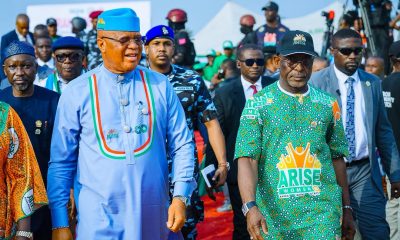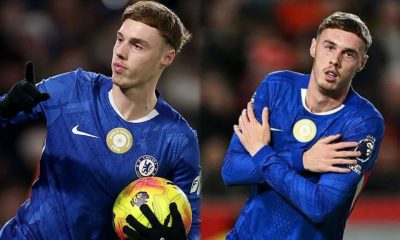By Oguine Daniel
The term celebrity implies a favorable public image, unlike the neutral famous or notable or the negative infamous or notorious. However, for many African celebrities, influencers, and social media stars, this image fades fast, often leading to a loss of relevance and even financial struggles.
In early October, Karen Patience Igho, winner of Big Brother Africa 2011, posted a video on X.com, confirming rumors that she was broke and homeless. In the video, recorded from a shelter, she appealed for financial support from her fellow Africans and Nigerians. This surprised many, as Karen had won $200,000 and emerged from the show not only with a significant prize but with the celebrity status that could create numerous opportunities—opportunities that, if well-managed, might have been worth far more than her prize money.
On October 25, content creator and “poverty activist” Lucky Udu interviewed talent manager Bosah Francis, also known as Bosa Lee. As founder of Lee Media Entertainment, a company that manages artists and social media sensations like Habeeb Hamzat (professionally known as Peller), Bosa Lee has witnessed the challenges celebrities face in staying relevant and financially stable.
In the interview, he identified four main reasons why many African celebrities, artists, and influencers struggle to maintain public relevance and financial stability:
1. Excessive Spending
According to Bosa Lee, the celebrity status often takes these personalities by surprise, and they lack a structured plan for the future. In an attempt to keep up with their new image, many start spending lavishly and unnecessarily. “How can someone justify buying a $1.5 million outfit for a one-night event?” he questioned, highlighting the unsustainable expenses some celebrities take on.
ALSO READ: George Weah: The only African footballer to break the Ballon d’Or Jinx
2. Overpricing Themselves
Bosa Lee also pointed out that once these personalities become famous, they refuse to take jobs for fees they consider too low, even if the payment is substantial by normal standards. This can range from about 500,000 to a million naira, which they often dismiss as unworthy of their “value.” He strongly disagrees with this mindset, emphasizing the importance of “tiny drops making an ocean.”
Many fail to consider the budget constraints of brands and the value that these brands expect to derive from hiring them. As an example, he cited a former Big Brother Naija contestant who requested ten million naira for a single party appearance. This attitude, he believes, discourages brands from returning as clients, impacting the celebrity’s long-term earning potential.
3. Failure to Deliver Quality
When these celebrities finally secure high-paying gigs, they often put minimal effort into fulfilling the brand’s expectations. Bosa Lee noted that the most challenging part of managing an influencer is getting them to do the job well. Instead of creating a high-quality ad, they may post casual videos of themselves instead, fearing that a professionally produced ad might attract negative feedback and lower engagement.
While some of this fear may not be unfounded, Bosa Lee stressed that the idea of “making it without brands” is unrealistic. Many influencers produce content with the goal of attracting brands, so when they get a partnership, they need to give it their all. Anything short of this discourages brands from working with them again, ultimately leading to dwindling opportunities.
4. Lack of Self-Discovery and Planning
Lastly, Bosa Lee noted that many of these personalities lack self-awareness and a structured plan to capitalize on their success. For example, he mentioned that while Big Brother is a fantastic platform, it’s not an ideal launchpad for a musical career because the show’s fan base primarily appreciates reality TV personalities rather than musicians.
He also pointed out the importance of authenticity, sharing an anecdote about a lawyer who entered Big Brother but exited wanting to pursue a career as a musician. Celebrities who lack a clear direction are more likely to squander their opportunities.
The interview also touched on a sensitive issue: whether female celebrities fare better financially than their male counterparts. Bosa Lee agreed that women often see financial benefits from wealthy male admirers who support them, sometimes with significant gifts or financial help. In contrast, male celebrities must work harder to reach financial success.
He also revealed a darker side of the industry: to secure connections, male celebrities are sometimes asked to provide “favors” to powerful individuals, including favors for other men. Bosa Lee said that both male and female celebrities face these pressures, leaving interviewer Lucky Udu in shock.


 Crime1 week ago
Crime1 week ago
 Crime6 days ago
Crime6 days ago
 Latest1 week ago
Latest1 week ago
 Football3 days ago
Football3 days ago
 Business1 week ago
Business1 week ago
 News3 days ago
News3 days ago
 Business5 days ago
Business5 days ago
 Football1 week ago
Football1 week ago
